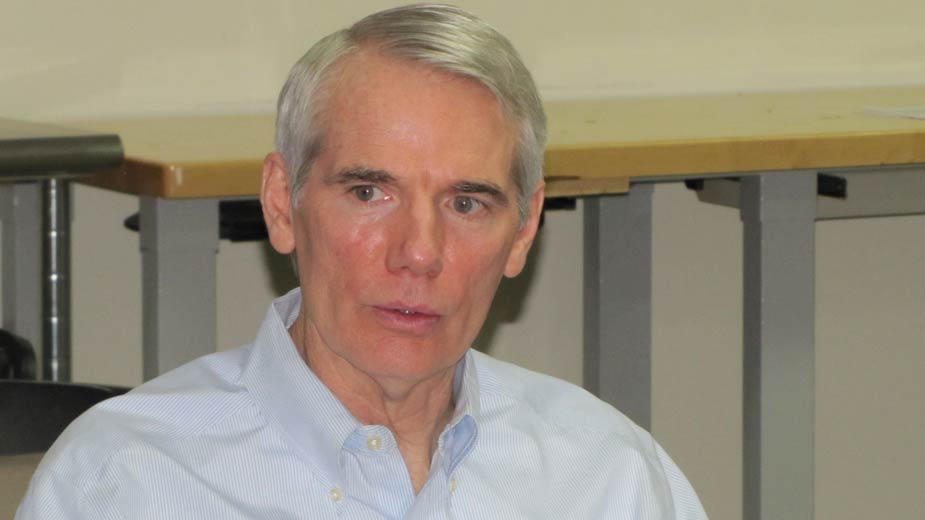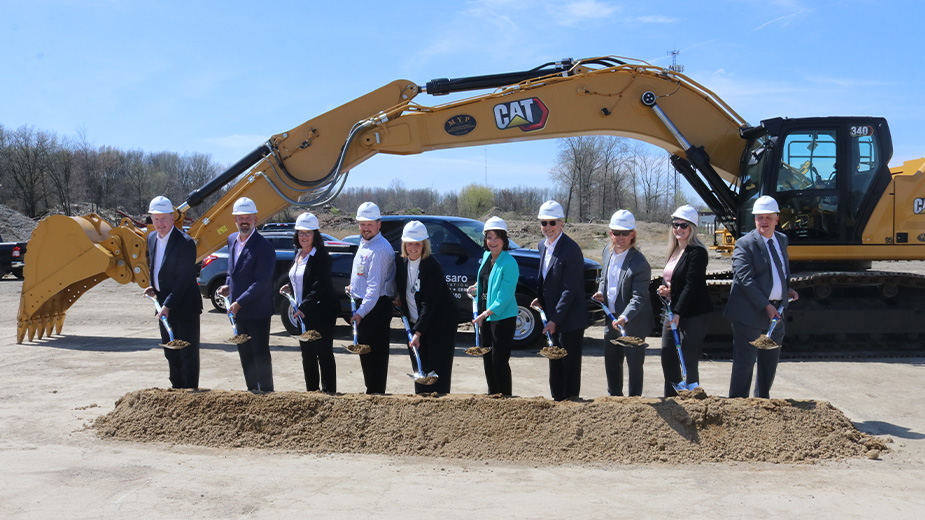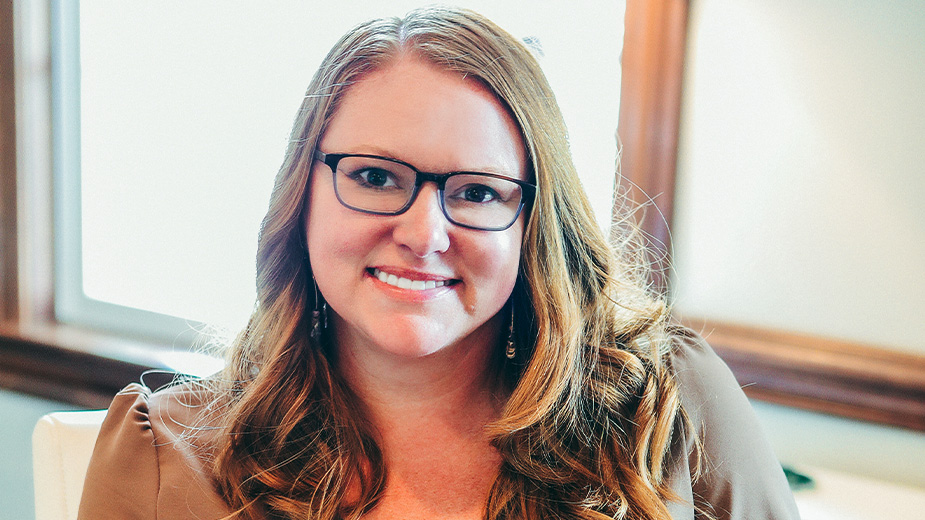Portman Hears from Addicts, Drug Treatment Professionals
YOUNGSTOWN, Ohio — U.S. Sen. Rob Portman heard directly from an addict under treatment at the Neil Kennedy Recovery Center about how he benefited from the expansion of Medicaid in Ohio.
Portman, R-Ohio, met privately with a pair of individuals being treated at the South Side drug treatment center before a panel discussion and tour of the clinic. Both told him the clinic had saved their lives, the senator said, and one said he wouldn’t be there without the expansion of Medicaid in Ohio.
“He wouldn’t have qualified under traditional Medicaid,” Portman said.
Drug treatment legislation is a priority for the Republican from Cincinnati. Last year, President Barack Obama signed Portman’s Comprehensive Addiction and Recovery Act , which provides grants to address various aspects of the addiction issue. Portman and Sen. Amy Klobuchar of Minnesota, a Democrat, this week introduced the Prescription Drug Monitoring Act.
“The federal government can and must be a better partner with communities like the Mahoning Valley that are trying to deal with this epidemic,” Portman said Friday.
“We’ve got an epidemic now and it’s frightening what’s happening,” he said.
The senator conducted a brief discussion with substance abuse and mental health professionals from around the Mahoning Valley, took a short tour of the campus and visited one of the recovery houses.
Proposed changes to Medicaid, including roll back of its expansion, was the “biggest concern” Portman said he raised over the House of Representatives’ legislation to replace the Affordable Care Act. Of the people covered under expanded Medicaid in Ohio, 30% are being treated for mental health or substance abuse issues. Treatment accounts for half of the cost.
“We need to make sure that these people are not going to fall between the cracks. There is no place else for them to get picked up, except in our prisons or emergency rooms,” he said. “We want them to be in treatment where they can get their life back together, get back to work, stop committing the crimes.”
Local treatment providers confirmed they face a growing problem.
An increasing number of clients are coming into the Neil Kennedy clinic and the population is sicker than it was even four years ago, said Alicia Santilli, clinical director of inpatient services. “Overdoses are happening every day here in the Valley and it’s really important for these clients to come in and get services.”
At Neil Kennedy, 90% of its clients are on Medicaid, and without the Medicaid expansion probably half of them wouldn’t be able to get the services they need, Santilli said.
“The epidemic is growing here and these people need treatment,” she emphasized. “A lot of single, white males would not be able to receive the services they need without the Medicaid expansion.”
Lauren Thorp, director of recovery and youth programs for the Trumbull County Mental Health and Recovery Board, said the epidemic is getting only worse.
“We are being overwhelmed and inundated with overdoses right now in our county,” Thorp said.
Leaders in Washington are talking about setting Medicaid up as a block grant program to the states. “It’s not going to be nearly enough,” Santilli warned.
States should have more flexibility but they also need “more help on the funding side,” Portman said.
There needs to be greater accountability and better collection of data to show results, Portman added. Better information can help secure more money, he said.
The Neil Kennedy clinic is working to improve its data collection as it implements electronic health records, said Carolyn Givens, executive director. “People who want to fund us have a right to know what’s really working,” she said.
Dr. Joe Sitarik, clinic medical director, said he’s concerned that many treatment centers simply hand out medication without accountability. Medical treatment without comprehensive treatment – including counseling – doesn’t work, he said. Those patients then end up at Neil Kennedy, he said.
“There’s a whole bunch of people trying to do it wrong,” he stated.
Santilli said she hopes Portman will help Congress understand the importance of the role the expansion of Medicaid has played and how many Valley lives it has helped.
But Thorp also wanted Portman to appreciate that while people in the community are suffering, much good is done as well.
“We need the support of Washington to continue and expand those good things going on in our community,” she said. “Right now, the state is talking about flat-funding going into next year, but our need is growing. So we need to expand all the great work that’s going on in our community to further help people.”
Copyright 2024 The Business Journal, Youngstown, Ohio.



